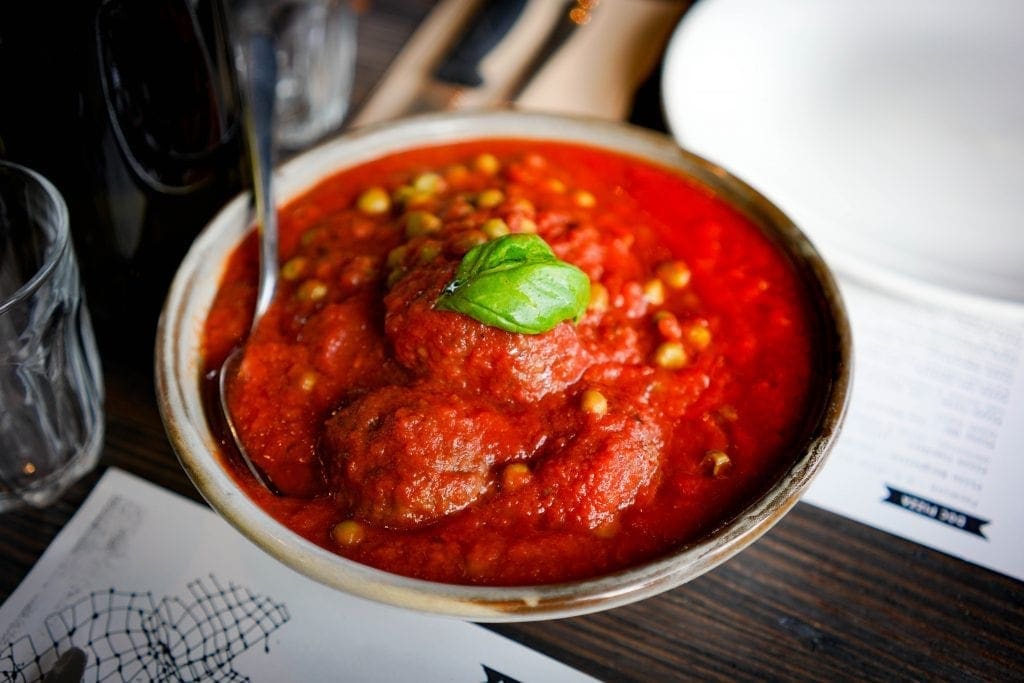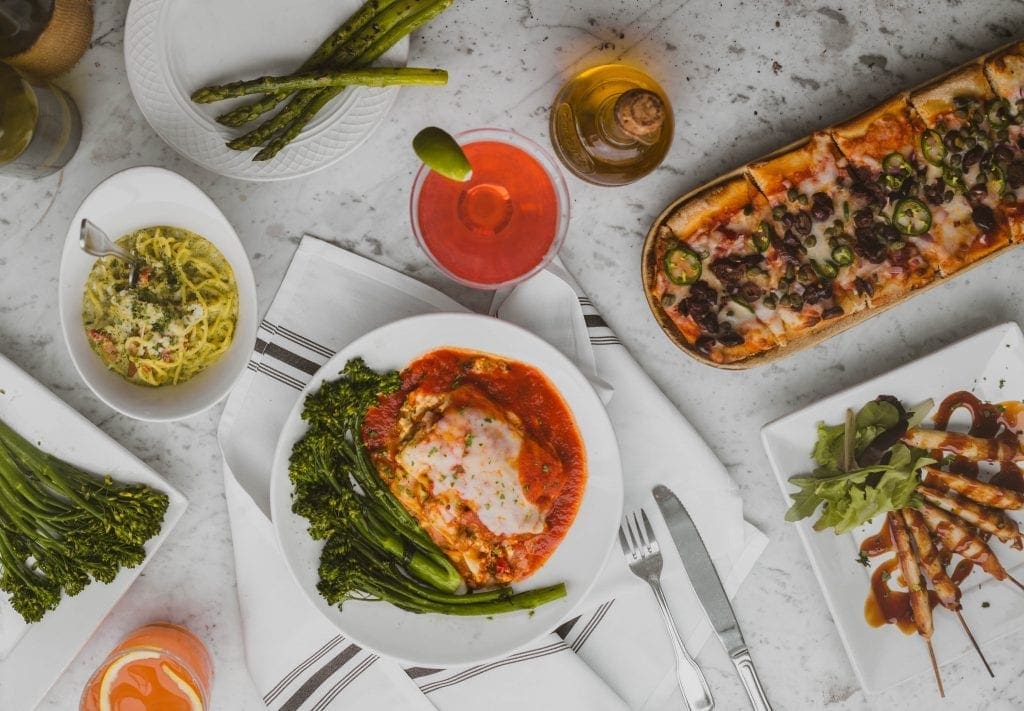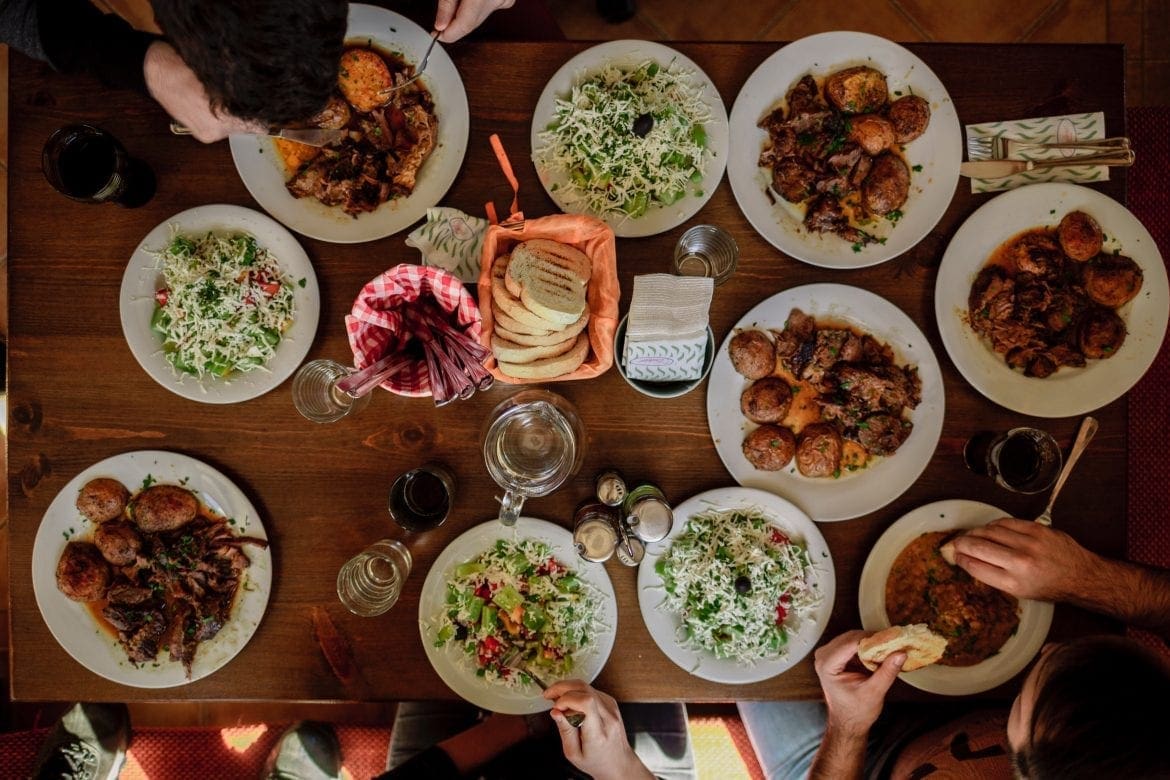In a state known for its iconic contribution to television in “The Sopranos,” it’s no wonder that nearly 1.5 million Italian-Americans call New Jersey home. The state also boasts some of the best Italian restaurants and specialty food stores. Anyone who’s left the New York or New Jersey area can attest to the shock to their system when they realize there’s no Italian market to buy fresh meats and cheeses.
Growing up in a 100 percent Italian family in New Jersey, my heritage felt not only preserved, but appreciated. My family had the privilege of carrying on our food traditions with plenty of authentic ingredients to make our favorite kinds of pastas, meatballs, and red sauce. My large extended family—all of us from the New York and New Jersey area—joined in on the celebration of our heritage, too. But beyond the affirmation of my roots from my family and New Jersey culture, I also noticed genuine fascination from all my non-Italian friends at a heritage that ran so deep.
My friends loved—and still do—the quality food, entertaining stories, and little cultural quirks from my Italian roots. They count the number of Tony’s in my maze of extended family members, and everyone thinks I’m talking about the movie when I mention “my cousin Vinny” (but I really do have a cousin named Vinny). Their intrigue with our rich culture and history also made me reflect on the valuable insights and behaviors that stem from my heritage.
This world of Italian customs generates an unending supply of unique but universally applicable tips. Straight from the lips of my Sicilian mother, here’s a few tried and true sayings that apply to both pure-bred Italians and those with a fascination for this strange but lovable culture.

Photo via Fidel Fernando
“Stir the Sauce!”
All cultures thrive on their own culinary traditions, so this isn’t necessarily unique to Italians. Though it’s safe to say that Italians know how to do food well, and use it to bring others together. Awkward meetings with people you’ve never met, an afternoon spent with estranged family members, or introducing your significant other to your parents can be smoothed over with good food. Especially when it’s mom’s meatballs.
Sharing your culture’s food with guests says a lot more about you and your family than just being able to whip up a good meal—though that’s always a plus. From our penne vodka to my mom’s “Sciacca meatballs,” sharing my family’s favorite meals with guests have fostered dinner table conversations about our guests’ food traditions, familial roots, and fond memories. We’ve also been known to overfeed people; but the general rule of thumb in Italian households is that if you’re not ready to burst by the time the meal’s over, you didn’t eat enough.
Learning to cook cultural favorites on your own can serve as a nostalgic-filled pastime that also prepares you to host people at your own home. My quarantine bread-making endeavor turned into a Sunday dinner staple in my house, and I’ve also been able to share the fruit of my labor with friends outside my home.
Food brings us together, in a range of different ways. Just don’t forget to stir the sauce, or else it’ll stick and burn, and you’ll ruin the meal.
“I’m Not Yelling!”
There’s a lot of yelling in Italian households. In my family, the ruckus usually hinges on something about food. My mom has been known to gesticulate wildly as she talks, and she has a habit of doing so while she’s cutting vegetables. We collectively duck anytime there’s a knife in her hand.
Needless to say, we’re known for our loud home. My friend jokingly remarks that walking into my house for Sunday night dinner feels like she’s stepping into a reality TV show. Whether meal prepping or sitting around the table, someone in the house can usually be heard shouting from down the block. It’s not (usually) out of anger, though. There’s an excitement to get the food right because we’re having guests, or to share stories with each other. When we’re yelling, we don’t think of it as yelling; we show how much we love people with our volume. Greater volume equals more love. It’s basic math, really.
If you can stand it, embrace the noise. It’s a sign of love. Most of the time.

Photo via Pablo Merchán Montes
“Are You Coming For Dinner?”
Italian families are known for their fierce loyalty to each other (cue all of the “Godfather” references), but I’ve always admired my family’s desire to make everyone feel welcome in our home. On more than a few occasions, we’ve sought to bring people with nowhere to go for a holiday or Sunday dinner—a sacred event in an Italian-American household—into our home and, subsequently, the family.
There’s a great deal of love and loyalty in an Italian home, but that care also translates to people outside the family. Welcoming others into a supportive and loving (and, yes, maybe slightly dysfunctional) environment—especially when they don’t have one themselves—can be so enriching to both the family and those you welcome into it. My parents are called “Mom” and “Dad” by a lot more people than just their three daughters, and I’ve acquired many more siblings and cousins than are related to me by blood.
Sometimes an Italian-American family can feel overbearing from the inside—or even absurd from the outside looking in. But in its seeming madness, there’s an undeniable charm. For all its quirks, this little world possesses its own universal wisdom. I’ve had a front-row seat to this, all the while tucking these lessons into my pocket to save for later. But now, they’re lessons and traditions I have the privilege of using on my own, and sharing with others. And I’ll never forget to stir the sauce.
Main photo via Stefan Vladimirov.
About the Author/s
Liana is an editorial assistant intern at The Digest. Her hobbies include reading, writing, and drinking too much coffee.

1 comment
great article!